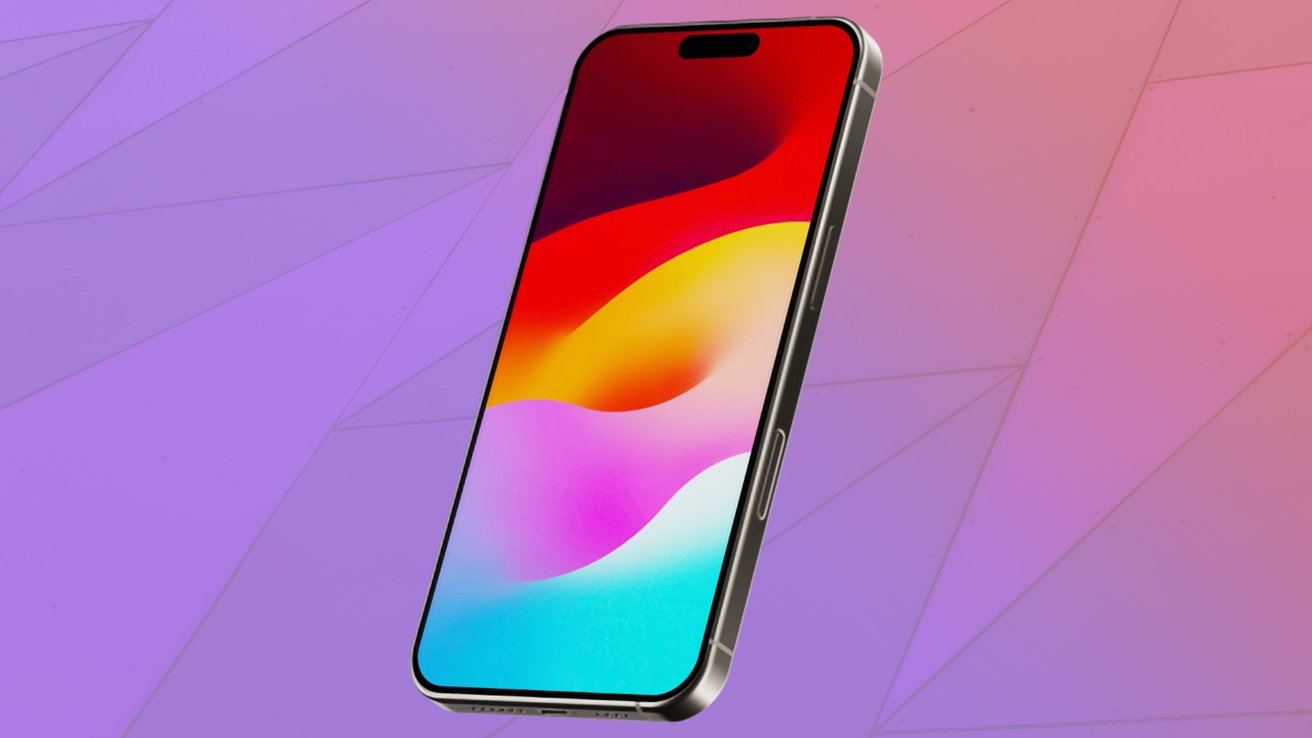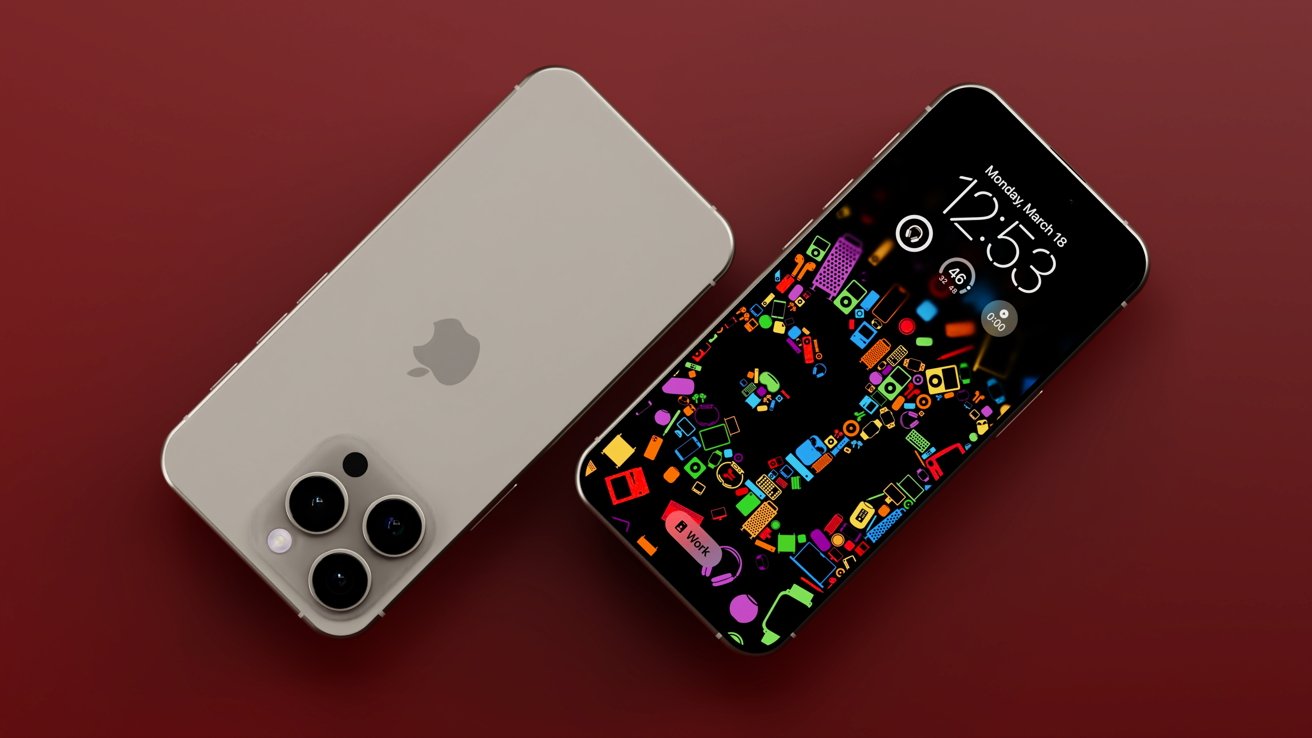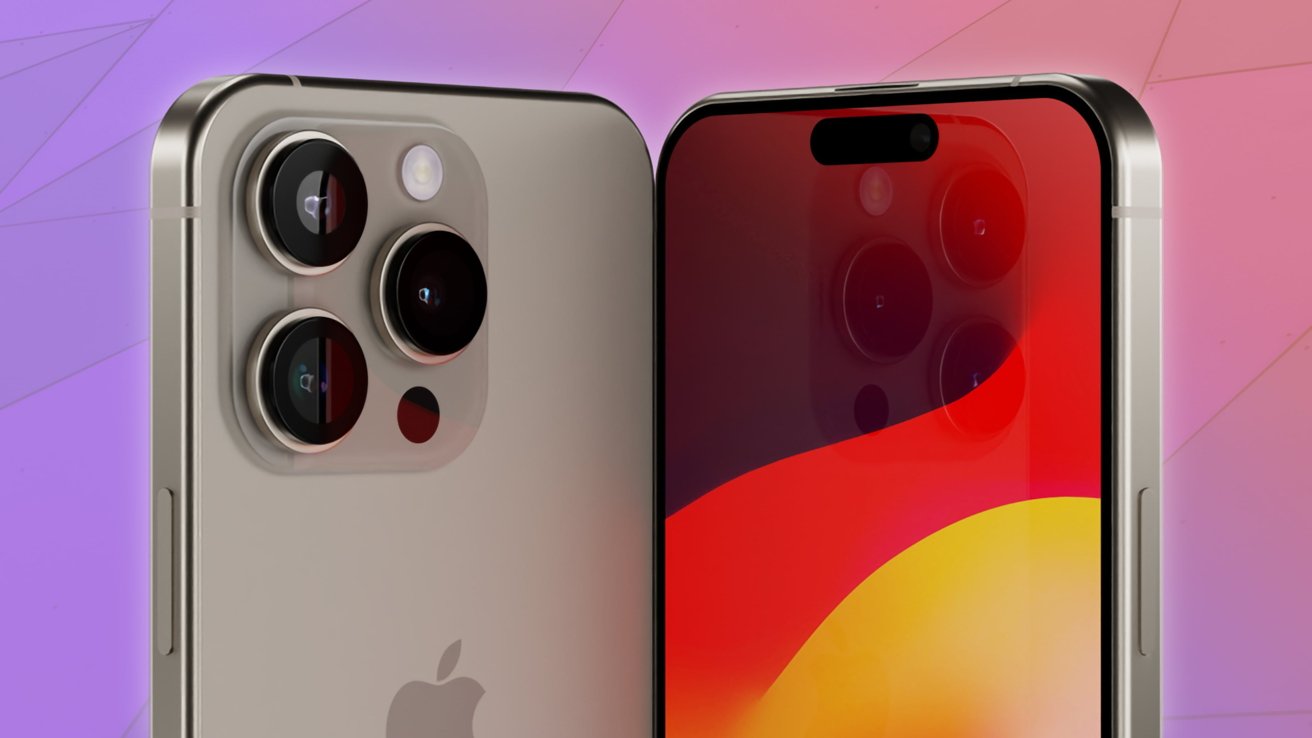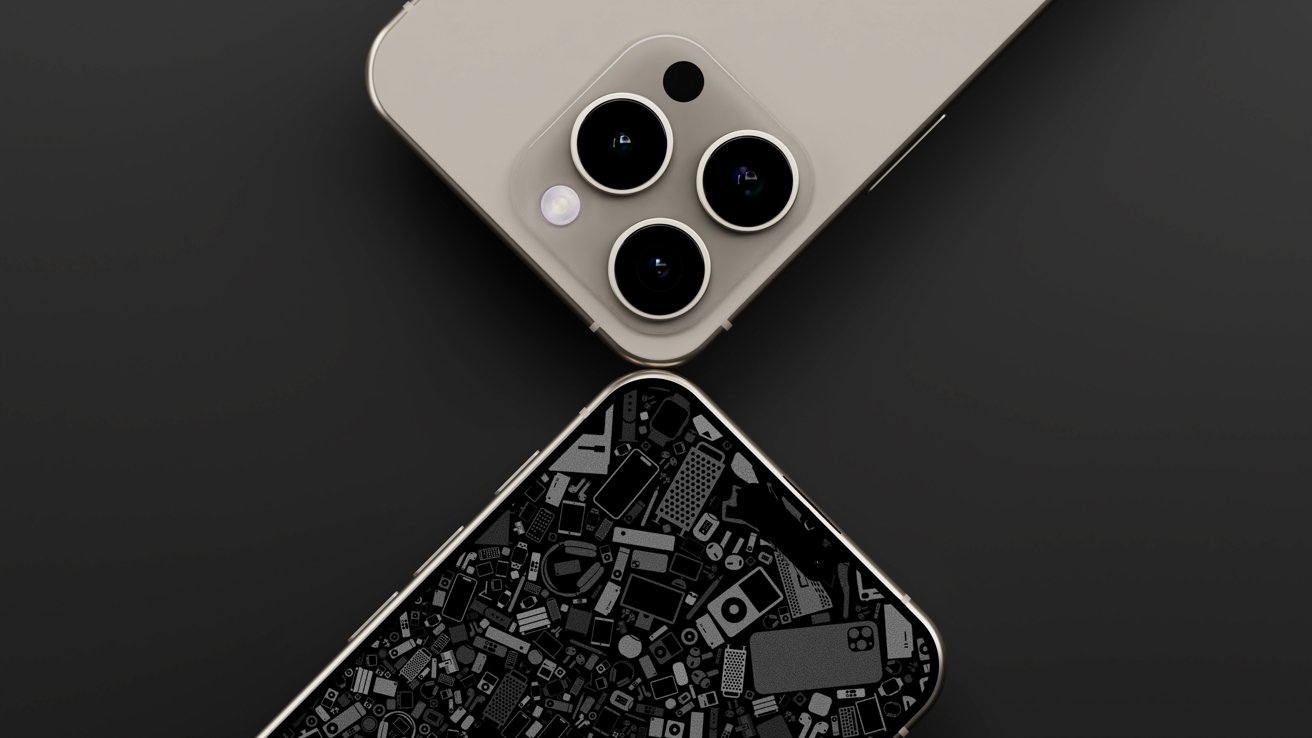
The iPhone 16 Pro’s screen may get bigger.

The iPhone 16 and iPhone 16 Pro are expected to get some display changes. Here’s what’s believed to be on the way, thanks to the ever-grinding rumor mill.
Since the display is the most important part of a smartphone, rumors tend to pile in about every minute change coming. Despite Apple’s generally slow year-over-year pacing for upgrades, a lot of tiny adjustments have been rumored so far.
The displays were relatively untouched for the iPhone 15 lineup. That means the iPhone 16 lineup could see significant display upgrades, especially with the 13-inch iPad Pro flexing with a tandem OLED display.
Considering the overall volume of rumors, many have focused on the display. That could be a result of the importance of the component, ease of leaking information from that sector, or a combination of both.
Here’s a roundup of what leakers and analysts believe will arrive with the iPhone 16 and iPhone 16 Pro.
iPhone 16 Pro screen size rumors
Size is a big factor of displays on a mobile device, and it’s the same for the iPhone 16. This time, they’re set to be bigger and better.
Rumors started off in May 2023, before the iPhone 15’s release, indicating that a size increase was inbound. Analyst Ross Young said that the iPhone 16 Pro and Pro Max would have screens measuring 6.2 inches and 6.8 inches respectively, with those figures rounded down.
This would in theory be a small increase for the models, from the existing 6.1-inch iPhone 15 Pro and the 6.7-inch iPhone 15 Pro Max.

Renders of what could be the iPhone 16 Pro
One of the claims for the screen size change is apparently to help the Pro and Pro Max variants to fit in a periscope lens. Adding a large sideways lens assembly would necessitate some design changes internally, especially for space.
Another report from later the same month claimed that the Pro models would gain in size by “a couple tens of an inch diagonally.” Other leakers the same month offered sizes up to 6.3 inches and 6.9 inches.
At the end of September, after the iPhone 15 launch, rumors reappeared, claiming a 6.27-inch screen for the iPhone 16 Pro and a 6.85-inch version for the Pro Max.
iPhone 16 & iPhone 16 Pro bezel rumors
To go with the bigger screens, Apple could thin the bezels a bit to keep the overall iPhone size from scaling up too much. But that can cause some production issues.
In April, The Elec reported that supply chain members were having a problem shrinking the bezels more, causing yield issues.

A reduced bezel could allow the iPhone 16 Pro screen to be bigger without growing the device’s overall size.
One month prior, there were claims that the ultra-thin bezels would use Border Reduction Structure (BRS) technology. However, there was a problem applying it to the bottom edge.
Issues in heat dissipation were supposedly improving, but it was still a challenge for suppliers to actually get right.
iPhone 16 Pro brightness changes
A few leaks surfaced over the year, proposing that the displays in the iPhone 16 could be much brighter than previous versions.
The September 2023 leak insisted Apple was looking into a Micro Lens Array (MLA) technology. It had previously researched it, but hadn’t used it a display.
The concept can increase the display brightness of an OLED screen by microlenses being hit by light that ends up heading towards the back panel, reflecting it forward instead.

Tandem OLED is already used by the 2024 iPad Pro models
One of the issues with the tech is that it does reduce the viewing angle of the screen, which Apple had trouble accepting.
By May, another leak from Setsuna Digital on Weibo insisted that the Pro models would get a boost. The iPhone 16 Pro would have a typical maximum brightness of 1,200 nits, and a peak HDR brightness of 1,600 nits.
Compared to the iPhone 14 Pro, this represents a 200-nit increase in typical max brightness and a continuation of the HDR brightness level.
At the same time, the leaker claimed that Apple wouldn’t use the Tandem OLED structure introduced with the 2024 iPad Pro. That system uses two OLED layers instead of one, increasing overall brightness.
Under-screen Face ID rumors, again
A thorn in the side of iPhone users over the years has been Apple’s display compromises to fit in the TrueDepth camera array, enabling Face ID to work. Apple has shifted from the dreaded notch to the more loved Dynamic Island, but it may remove it entirely in the future.
Back in February 2023, The Elec said that an under-display Face ID implementation could happen on the iPhone 16 Pro, enabling an all-screen display. There was difficulty in getting an under-panel camera working through the display specifically for Face ID.

The front and back of what could be the iPhone 16 Pro.
The biggest problem is that it works, but for camera modules with 4 million pixels, a far cry from what Apple needed to maintain its 12MP sensor.
The prediction of an under-display Face ID camera is a lot older than that. In April 2022, Ming-Chi Kuo responded to a tweet from Ross Young in predicting it would arrive by 2024, for the iPhone 16.
iPhone 16 & iPhone 16 Pro parts are in production
With only a few months away from release, the manufacturers of Apple’s displays were reportedly getting very close to starting mass production. The Elec reported in May that Apple was preparing to approve its suppliers to start making screens.
Samsung Display was expected to receive approval by the end of May, with LG Display by the middle of June, and BOE to follow.
LG and Samsung were expected to make displays across multiple models. The report added that BOE was making non-iPhone displays.




